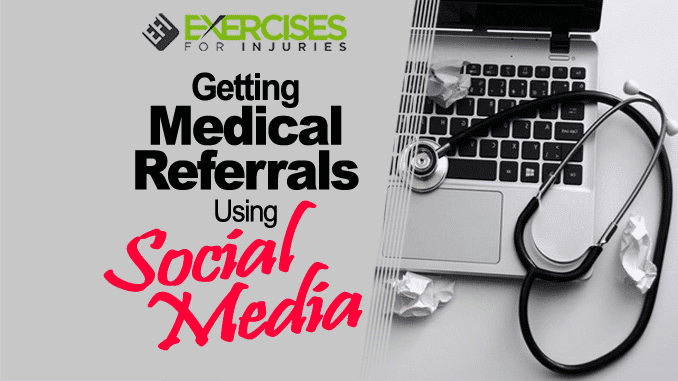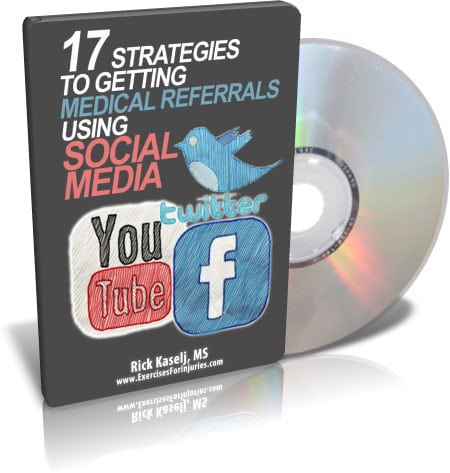
Social media is a wonderful place to establish connections with people and keep them. You can also use it to find new friends, business opportunities, and even work prospects. But you can use social media for something else as well: getting medical referrals. Social networking sites are the perfect places to meet new people who could potentially be useful in your professional life. For example, you might want to get a referral from your dentist, or maybe your friends know someone who’s looking for a doctor and would trust their recommendation. There are many ways of using social media for this purpose, but here is the course that may help you.
How to Get Medical Referrals Using Social Media
Patients can make an informed choice about where to get medical treatment by seeing which physicians they respect most. It is best to highlight the companies you trust most on social media. You can get medical referrals through social media by first deciding which healthcare providers to highlight. These may be either local or national companies. Local businesses are the greatest option because they provide patients with local alternatives. After that, publish a few tweets describing these providers. You may take a few pictures of the providers and write a brief bio about why they’re excellent. You can also publish a post about your patients, describing why you trust them. Include a link to the provider’s website or social media page so people can follow and learn more.
Course Description:

The fitness experts will get a thorough understanding of the critical social media pointers as well as an action list to gain more exercise rehabilitation customers. They can utilize these excellent approaches to develop custom methodologies for their clinic’s demands by combining them with their own strategies.
Course Objectives:
#1 – 4 PITFALLS that ALL FITNESS PROFESSIONALS MAKE When Using Social Media
The professionals who fail at using social media are either unaware of the different platforms or lack time to maintain their presence and engagement on those sites. They often consider it a waste of time, money, and effort.
#2 – 6 SOCIAL MEDIA SITES that fitness professionals MUST BE USING to get clients
Social media can be an effective tool for fitness professionals to market their business, share new findings and techniques with clients, and provide a space for the community to meet like-minded people with similar goals or interests. Furthermore, social media is very influential in today’s society – so much so that 80% of consumers are more likely to purchase something if they see it on social networks!
#3 – 17 TIPS on how to use social media TO GET MORE CLIENTS
It’s possible to use social media as a marketing tool. We can find out who is talking and what they are saying about fitness professionals in their community, leading to more clients. When I talk to people on Facebook or Instagram and mention the names of the top three gyms in town, those other social sites will notify my friends—by liking or commenting on the post—about what gym I believe is best for them.
#4 – 19 DIFFERENT WAYS TO USE SOCIAL MEDIA to get to your prospective exercise rehab clients
Using social media can assist fitness professionals in establishing an online reputation, establishing credibility, and reaching previously inaccessible clients through social networks or interest groups. By adopting the trend, you may be able to connect with your target audience better! It can assist in establishing an online reputation and credibility.
About the Presenter:
Rick Kaselj – MS, BSc, PK, CPT, CEP, CES
Rick Kaselj specializes in exercise rehabilitation, post-rehab, active rehabilitation, therapy, and corrective exercise. He works in one-on-one and group rehabilitation settings, training injured people who have been at work, in car accidents, and during sports activities. His clients and group exercise participants include a wide variety of individuals from healthy and special populations. Rick has given over 233 presentations to 4,531 fitness professionals and consumers across Canada while working in rehabilitation centers, physiotherapy clinics, fitness clubs, and personal training studios. Rick recently completed his Master of Science degree focusing on corrective and therapeutic exercises for the rotator cuff. To reach Rick or learn about his exercise rehabilitation courses, please visit Exercises For Injuries.
Investment:
Note: This product has been retired.
At this point, the product is no longer available. We apologize for the inconvenience but hope that you understand our reasoning.
Please check our website for the latest events and seminars like this one!

